What Does “Winning” Iowa Mean?
The obsession over a singular winner ultimately makes no sense.
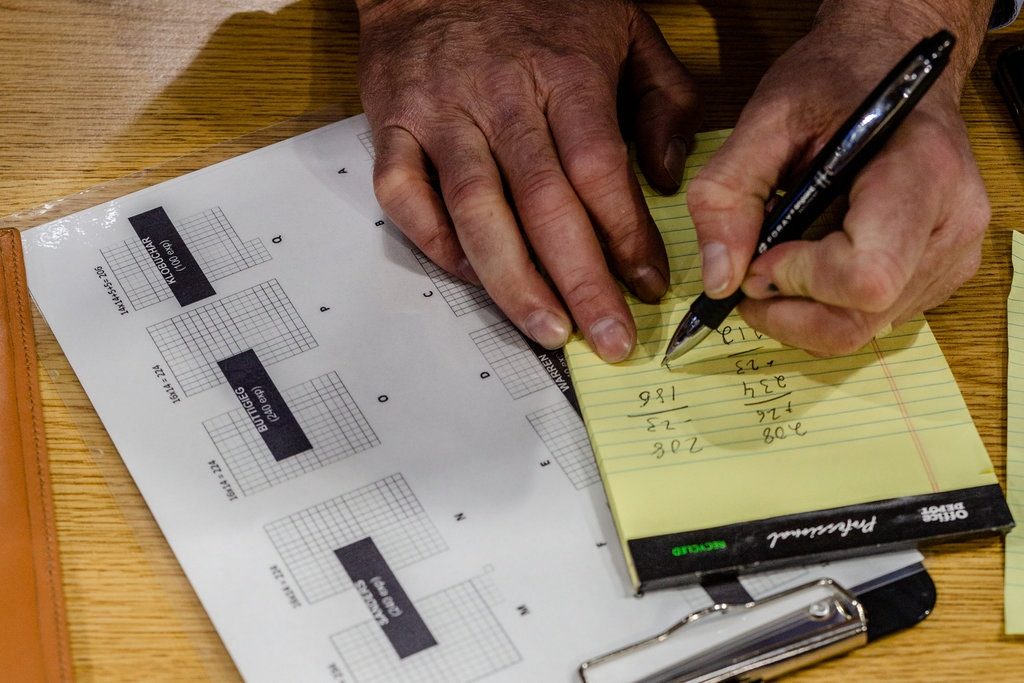
When I checked the Iowa caucus results yesterday, I saw this headline at the NYT (which I heard repeated on NPR this morning): The Associated Press ‘is unable to declare a winner’ in Iowa. I understand that the media narrative demands a “winner” and that the plurality paradigm that we operate in locks American minds into the notion that there is a singular winner in every election. However, I can’t help but find the whole notion that we don’t know/may never know, the “winner” in Iowa to be highly problematic.
The bottom line is that there are 41 delegates that will be distributed somewhat proportionally,* to a number of candidates. It looks like Pete Buttigieg and Bernie Sanders will be the top two candidates and that they will get the same number of delegates: 11.
For those keeping score at home, that represents about .5% of the delegates needed to win outright.
But, of course, I understand that media momentum matters. Hence, the fact that Buttigieg did as well as he did, and Biden did as poorly as he did, influences coverage, fundraising, and strategizing going into New Hampshire.
None of that, however, requires a definitive “winner” and even if, with the recanvas, Sanders ends up with a few more state delegates (which is the way the order is being determined–as of my writing this, Buttigieg has 26.2% and Sanders has 26.1%), the basic outcome (the number of delegates to the national convention) is almost certainly not going to change.
(I will lay down a marker here and note that it is possible, I suppose, that some weird shift might happen in the recanvas due to the bizarre nature of the process and the amateurish way they al recording the votes, but at the moment a tie at the top seems the likely outcome).
From an observer and analyst of elections, what I find interesting (and, to a degree, somewhat frustrating) is how this coverage illustrates how American minds are locked into a very specific framework when it comes to thinking about elections. We are so used to one office being contested in a single district, that we struggle to conceive of an election that allocates multiple winners in a way that is linked to how voters voted overall. Instead, we focus on who just got the most (and therefore in “The Winner”).
Really, talking about “winning” Iowa is nonsensical when you think about it. There is no singular prize to win, not from an electoral point of view. There is not one office to win. No one can win all the delegates unless one is running unopposed (or close thereto), so by definition, there will be multiple winners. The question becomes: what relative share of the prize did each candidate win? Right now, Buttigieg, Sanders, Warren, Biden, and Klobuchar all are projected to win delegates, while the rest of the field all clearly lost. Now, it is no solace to Biden that he is projected to win two whole delegates, nor is Warren happy with her five (let alone Klobuchar with her one).
So, we can talk about who came in first, or who got the most delegates but not about who won in a singular sense. (at least not if we want to accurately describe the outcome).
Granted, the winner does usually win big headlines, which is a real thing of value to that person, but that fact just underscores, yet again, how empty the actually Iowa Caucus process is in terms of the value that the vote itself adds. This has become a true reality show, and our system radically overvalues it.
The attempt this time to report the popular vote has just made the whole process even more convoluted. Sanders is currently leading in the popular vote 45,826 to 43,195), but I am not sure what the metric “popular vote” really means in the context of this process. If they want a real popular vote, use a primary.
I will admit that I have long been suspicious of the accuracy of the caucus results–it has long struck me that any process that is run by volunteers trying to corral people into groups on the floor of a gymnasium can’t possibly be perfectly accurate. It has always been more spectacle than a blue-ribbon example of how to run an election.
I think this year fully lays bare that Iowa is trying to use some quaint local meeting process in a way that really is not amenable to substantial public scrutiny. It definitely should not be influencing national politics.
In terms of the process itself, I will note the following Tweet from my friend and sometimes co-author in the academic realm, Matthew Shugart:
While somewhat tongue-in-cheek, I know that this tweet is the result of Matthew actually trying to figure out the process of connecting caucus results to the SDEs to the final delegate count. Subsequent tweets discussed his incredulity at the system.
I would note that it is no exaggeration to say that Matthew is one of the foremost scholars globally in the area of electoral studies.
Another observation: we Americans seem to have a really hard time understanding that when there are a lot of candidates, the vote is going to be divided up. It also means that the candidate who wins the largest share of the vote in a given contest isn’t necessarily the candidate who is the consensus choice. Indeed, that is why the delegates in Democratic primaries are allocated, to some degree, proportionally.**
Ultimately, watching twitter last night, and the media coverage yesterday and today, I have to admit that it provides insight into why it is so hard to talk about electoral reform in the US because people are so locked into a specific framework for thinking about elections. Granted, it is difficult for people to separate out the final outcome (a nominee) from the state (and substate) level processes that are allocating delegates.
Regardless, the media (and pundit/analysts) need to break out of this obsession with defining a winner when the term really isn’t the appropriate one based on the actual stakes.
But, of course, the horserace must go on!
*The 15% threshold means that the allocation is not perfectly proportional. Plus, the other factors come into play, such as the fact that 15% threshold was imposed at individual caucus meetings, not at the state level.
**This is even more true for the Democrats this time, given how they allocate delegates, versus the Republicans in 2016, as their rules tend to favor plurality winners.


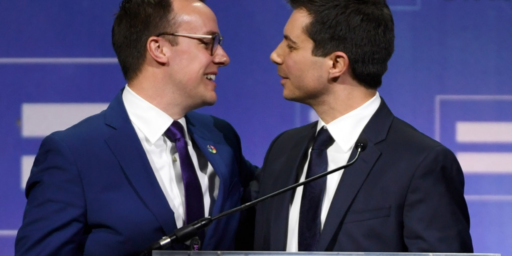
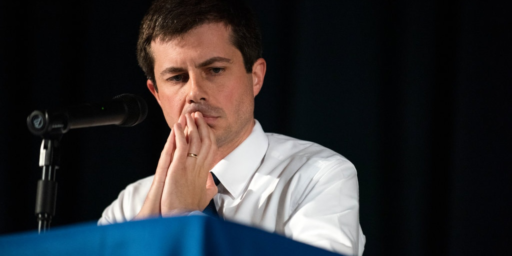
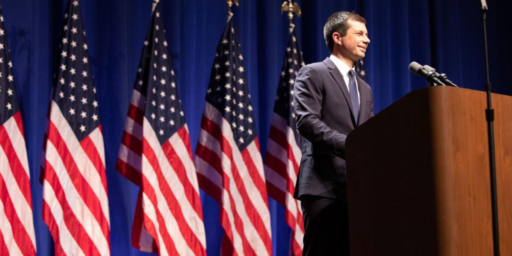
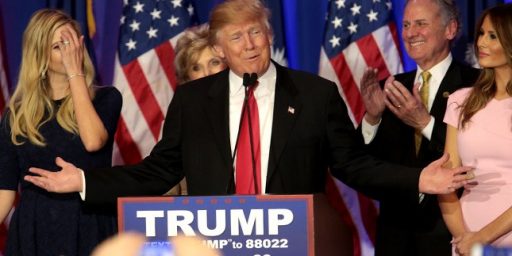
All good points. We might also look back at what each candidate wanted when he first set sites on Iowa. After all that jockeying for position, who feels he came strong out of the gate? Sanders, must like his position. Buttigieg must feel he has the inside track. Bloomberg must be feeling rather smug.
A one point difference matters in football. Transferring that thinking to some slight difference between the top two people is just silly. I don’t care which of the two is marginally ahead, I believe this is largely just something ginned up by the media to pontificate on.
I read the footnote, and I still have a question: does this figure of 11 each take the 15% viability into account, or does that not come into play at the higher levels of delegate selection? The numbers seem … off.
Also, does the Democratic Party state convention have the same basic rules as the Republican one from 2008 that led to Ron Paul winning most of the actual delegates long after the winner had been declared Santorum which itself was after the winner had been declared to be Romney? Are the numbers even relevant?
Caucuses are such a stupid system.
@Gustopher:
The 15% threshold comes into play at voting–wherein candidates who can’t reach viability (i.e., 15% support in the room) get nothing and those voters have to either no vote or resort to another candidate.
There are some other complexities in terms of exactly how those 41 are allocated. I have not even tried to sort out all the details owing to time. Matthew has tweeted a couple of things about it, but has not done a full write up.
It is not just that caucuses are a problem, but that the Iowa process is especially nutso.
I think that the rules are different, but I am not certain.
The bottom line is that the voting, the process, and the delegates take a huge backseat to a manufactured media event. It might as well be a straw poll.
@Gustopher:..Caucuses are such a stupid system.
Here. Scroll down to page 12. Determining viability…No wait. Start at page 10 (which is not numbered) where it says:
This will give you a real “feel” for what is to follow.
Steven, the media wants a ‘horserace’, and doesn’t know how to deal with anything else,
Some candidates either live or die based on Iowa and NH.
Pete got an incredible boost.
@Barry:
Indeed, as per the last line of the OP.
@Barry:
Or, Pete’s support was revealed.
I know it will further help him in NH, but the IA results show that he had more support than we thought.
At this point in the winnowing of candidates to talk about a winner, whether in a caucus or primary is silly. There are far too many candidates. You can talk of a win if in a field such as the current Dem one a candidate is up say +5% over the others but 1% or <1% no. More important in looking a these early contests is momentum of the individual candidates. Bernie met expectations, Pete exceeded, Liz slipped and Biden crashed and burned. That's the story and the significance.
If following NH all the non debate qualifiers, plus Yang, Amy and Steyer drop out and their supporters split between Biden and Pete in future primaries, they would be the winners in NH even if Bernie were received the most votes in NH
The problem stems from party polling in this era being taken for elections. That hasn’t always been the case, not by a damn sight. How many “primaries” did Ike “win”?
The advent of for-profit cable media following the highly successful business model is partially to blame. Another reason was the fustercluck of the Dem convention in Chicago during the Viet Nam war. The Party strayed too far from their constituency and their constituency had only one way to get that point across, pretty much. Making party polling all but an election elections checks that a bit. We’ve reached the point of insisting a party caucus be an election. Problematic, by the look of it.
The D’s found out that turning the nomination process completely over to populism could result in unelectable candidates, like McGovern. The Rs are discovering it can result in unfit for office POTUSs.
@Steven L. Taylor:
I’m not sure it does even that.
The Daily podcast the day before the voting was roughly half on the weirdness of the process and half on people who loved Buttigieg but didn’t know if he was viable. But I’m not sure that knowing that he’s fairly popular among the kind of Iowans who will put up with a weird caucus process tells us a whole lot about what Democrats writ large—or even those who will show up and actually vote in other primaries—think.
@James Joyner:
I totally agree with that.
However, like it or not there does seem to be some influence due to sequencing. Pete’s NH polls numbers have gone up. I think that there is something to the notion that success in IA allows people not sure as to whether their first preference is worth wasting their vote on.
@Sleeping Dog:
She exceeded her polling by several percent.
My position for many cycles is that Iowa and New Hampshire cull the weak.
It really makes no matter who won Iowa or New Hampshire, it is who survived.
Media obsess over both because they are the first because they are stuck for months filing stories from Cedar Rapids and Iowa City and Appanoose County diners.
Iowa and New Hampshire are the equivalent of the NFL preseason. Is your secondary coach up to the job?
It doesn’t matter who wins. The delegate count is fairly minimal.
Media make us over-emphasize early states because they are based there for months, so they feel an unconscious need to justify their earlier work. Make it seem big.
Iowa and New Hampshire cull the field. Outside forces make it seem like X or Y have momentum.
It is our fault we buy the momentum spin which is flat-out bull-shit.
If the first state were Alabama or Maine or New Mexico, media would squat on that state for months and therefore make it a bigger deal than it actually was.
Iowa culls the weak. If you get jacked about who won or who came second, that is your choice / fault, not Iowa’s.
The issue is expectation and narrative.
The cognitive importance of each primary / caucus diminishes with each successive state until we hit Super Tuesday. Then it diminishes again.
That is because of our media.
Not a homer. I’m looking to move north as soon as I can find a cool house I can afford with a good view of the lake. Minnesota has probably the least important primary in the country.
Also, can your state say they recognized same sex right to marriage before Iowa did?